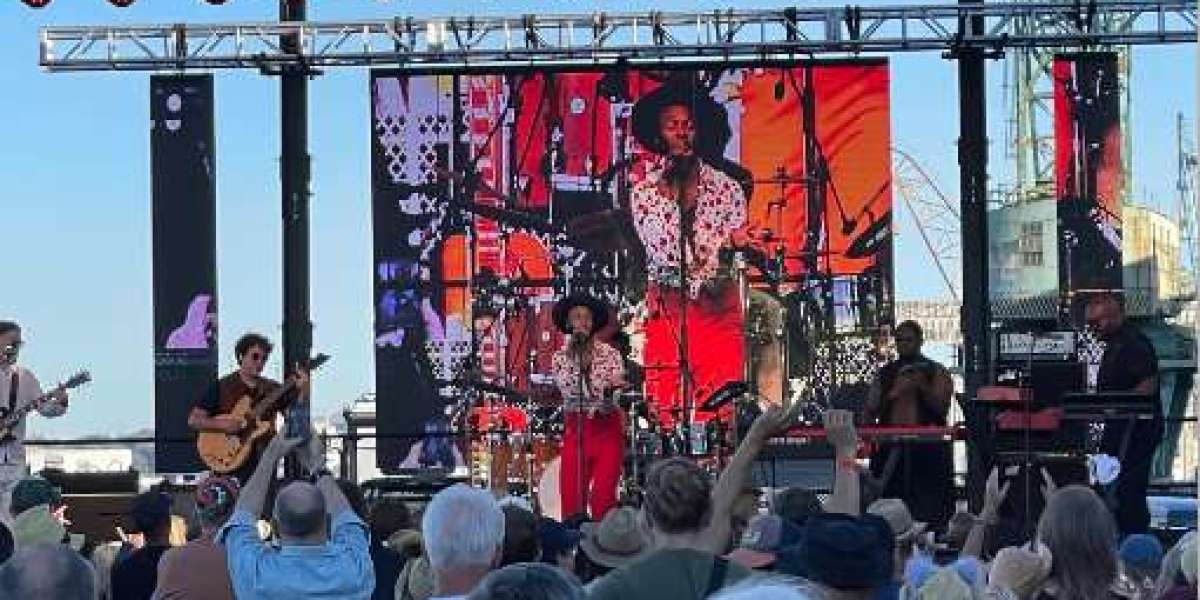In the realm of event planning and management, few aspects are as crucial and impactful as event staging. Event staging goes beyond simply setting up a venue; it encompasses the art of creating immersive environments that captivate audiences and elevate the overall experience. Whether it's a corporate conference, a music concert, a wedding, or a product launch, the staging of the event sets the tone and defines its success.
Understanding Event Staging
Event staging involves the strategic placement of elements such as lighting, sound, décor, and technology to enhance the atmosphere and engage attendees. It's about transforming a space into a dynamic setting that aligns with the event's theme and objectives. A well-staged event not only impresses guests but also reinforces the brand identity or message being conveyed.
Key Components of Event Staging
- Design and Layout: The layout of the stage and seating arrangements play a pivotal role in audience interaction and sightlines. A thoughtful design ensures that every attendee has a clear view and feels connected to the event.
- Lighting: Lighting sets the mood and ambiance of the event. From dramatic spotlights to subtle ambient lighting, it can evoke emotions, highlight key elements, and guide the audience's focus.
- Sound: Clear, high-quality sound is essential for effective communication and entertainment. Whether it's speeches, music performances, or multimedia presentations, sound reinforcement ensures that every word and note is heard crisply.
- Décor and Props: Visual elements such as backdrops, props, and furnishings contribute to the thematic coherence of the event. They create a cohesive aesthetic that reinforces the event's purpose and enhances the overall experience.
- Technology Integration: From LED screens for presentations to interactive displays and augmented reality experiences, integrating cutting-edge technology can significantly enhance engagement and leave a lasting impression on attendees.
The Importance of Event Staging
Creating Memorable Experiences
Events are not just gatherings; they are opportunities to create memorable experiences that resonate with attendees long after the event concludes. Thoughtful event staging can transform a mundane space into a captivating environment that leaves a lasting impression. Whether it's through innovative design, immersive technology, or creative use of lighting and sound, staging sets the stage for unforgettable moments.
Reflecting Brand Identity
For corporate events and product launches, event staging serves as a powerful tool for brand expression. Every element, from colors to logos to overall design aesthetic, can reinforce brand identity and values. Consistency in staging helps strengthen brand recall and fosters a cohesive brand experience across all touchpoints.
Enhancing Engagement
Engagement is key to the success of any event. Effective staging not only captures attention but also encourages interaction and participation. Whether it's through interactive displays, live polls, or experiential zones, well-executed staging keeps attendees engaged and invested throughout the event.
Supporting Event Goals
Every event has specific objectives, whether it's to inform, entertain, inspire, or celebrate. Event staging should align closely with these goals to maximize impact. For example, a fundraising gala may focus on creating an elegant and inviting atmosphere to encourage donations, while a product launch may emphasize showcasing innovation and excitement through cutting-edge technology and dynamic presentations.
Trends and Innovations in Event Staging
Sustainability and Eco-Friendly Practices
As environmental consciousness grows, so does the demand for sustainable event practices. Event planners are increasingly opting for eco-friendly staging materials, energy-efficient lighting solutions, and digital signage to reduce waste and minimize environmental impact.
Virtual and Hybrid Event Staging
The rise of virtual and hybrid events has revolutionized event staging. Virtual platforms allow for immersive digital environments, interactive features, and global reach. Hybrid events combine virtual elements with in-person experiences, requiring innovative staging solutions to seamlessly integrate both worlds.
Personalization and Customization
Audiences crave personalized experiences, and event staging is no exception. Customizable lighting schemes, personalized digital displays, and interactive elements tailored to individual preferences can enhance attendee satisfaction and engagement.
Data-Driven Insights
Advanced analytics and data collection tools enable event planners to gather valuable insights into attendee behavior and preferences. This data-driven approach informs staging decisions, allowing for more targeted and effective event experiences.
Best Practices for Effective Event Staging
- Start with a Clear Vision: Define the event's objectives, theme, and audience expectations to guide your staging decisions.
- Collaborate with Experts: Work closely with event planners, designers, AV technicians, and vendors to leverage their expertise and ensure seamless execution.
- Focus on Details: Pay attention to every detail, from the placement of furniture to the alignment of signage, to create a polished and professional atmosphere.
- Rehearse and Test: Conduct rehearsals and technical tests to anticipate and resolve any issues before the event begins.
- Seek Feedback: Gather feedback from attendees and stakeholders to continuously improve and refine your staging strategies.
Conclusion
Event staging is both an art and a science—a careful orchestration of design, technology, and creativity aimed at creating extraordinary experiences. Whether you're organizing a corporate event, a social gathering, or a live performance, the way you stage the event can make all the difference. By understanding the principles, embracing innovation, and staying attuned to trends, event planners can elevate their events from ordinary to extraordinary, leaving a lasting impression on attendees and achieving their event objectives with flair.








